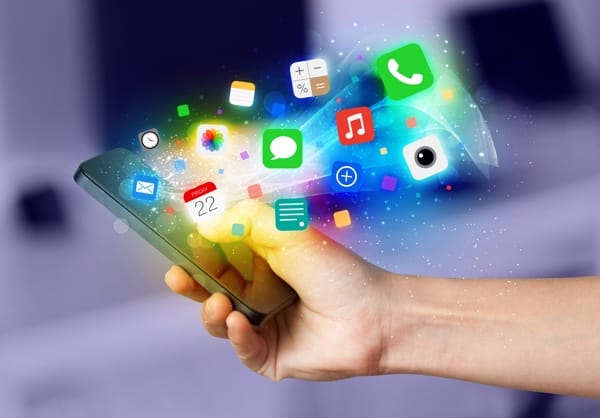Apps that changed the world...

In the first of several posts, we take a look at mobile apps that changed the world in one way or another, for better or worse.
There are dozens of apps that could lay claim to having changed the world or had a far-reaching impact – some of these are simply mobile versions of websites, perhaps Facebook or Twitter for example. However, in trying to come up with some really great examples, I thought it would great to discuss what really kickstarted the app revolution – and many would agree it was Apple’s App Store.
The App Store heralded a new era of mobile apps
Earlier this year, Apple announced the first week of January set new records for revenue from the App Store, with customers worldwide spending almost half a billion dollars on apps and in-app purchases. New Year’s Day 2015 was the single biggest every day in the App Store sales history. That comes as no surprise when you consider Apple had a blockbuster holiday season last year, selling at least 70 million iPhones, thanks to the iPhone 6 and iPhone 6 Plus, which have both been massive hits with consumers.
Similar App Store milestones seem to occur every year – for example, in 2014, app store billings rose more than 50% and apps generated over $10 billion for developers. Apple says it has paid App Store developers more than $25 billion from total sales of apps and games since launch – pretty impressive numbers.
It was Apple that kickstarted the app revolution with the App Store, which launched in 2008. Since then, an entire industry has sprung up around app design and development. In nearly 7 years, iOS apps have helped to create more than 600,000 jobs in the US alone, according to Apple.
And today, the App Store has more than 1.4 million apps for iPhone, iPad and iPod Touch, spread across 155 countries, with more than 725,000 apps made especially for the iPad – a fact that Apple is particularly proud of.
Part of the App Store’s success is its diversity – there are an incredible range of apps in dozens of categories – such as games, social networking, productivity, health and fitness, travel, kids and many more. The phrase “there’s an app for that” is now truer than ever before.
Steve Jobs opposed the App Store at first
It seems strange today to learn that Steve Jobs was against the idea of allowing third party apps for the iPhone, at least at first. According to Walter Isaacon’s biography, Steve wanted developers to create web apps that could be used through the Safari web browser. An Apple board member, Art Levinson, said that “Jobs at first quashed the discussion” of allowing apps on the company’s debut smartphone.
Art apparently called Steve “half a dozen times to lobby for the potential of the apps”, but Steve was against them, “partly because he felt his team did not have the bandwidth to figure out all the complexities that would be involved in policing third-party app developers.”
Thankfully, web apps didn’t really take off, and Steve change his mind in due course – it was announced in October 2007 that a development kit for the iPhone would be released the following year. Then in July 2008, the App Store was born, and has since become one of the iPhone’s main selling points – it’s also arguably the most successful mobile app store, with billions of downloads since it first opened.
Today, despite the fact that Google Play has caught up in terms of numbers of apps and total downloads, the App Store is considered by many to be superior – in part due to its more curated experience (Apple attempts to weed out apps that don’t conform to its strict guidelines), plus the fact that many blockbuster apps, games and so on appear on the App Store for iOS first – developers still find iOS a more profitable platform than Android on the whole.
With the ‘app’ buzzword firmly entrenched in popular culture, the humble mobile application has come a long way in the past seven years since the App Store was launched. It’s going to be one hell of a ride to see what capabilities and features that apps on every platform will offer in another seven years…
For the next ‘apps that changed the world’ post, we’ll choose an app that’s made a profound or enormous impact on the world. In the meantime, we would love to hear your own suggestions for apps that deserve the title.





